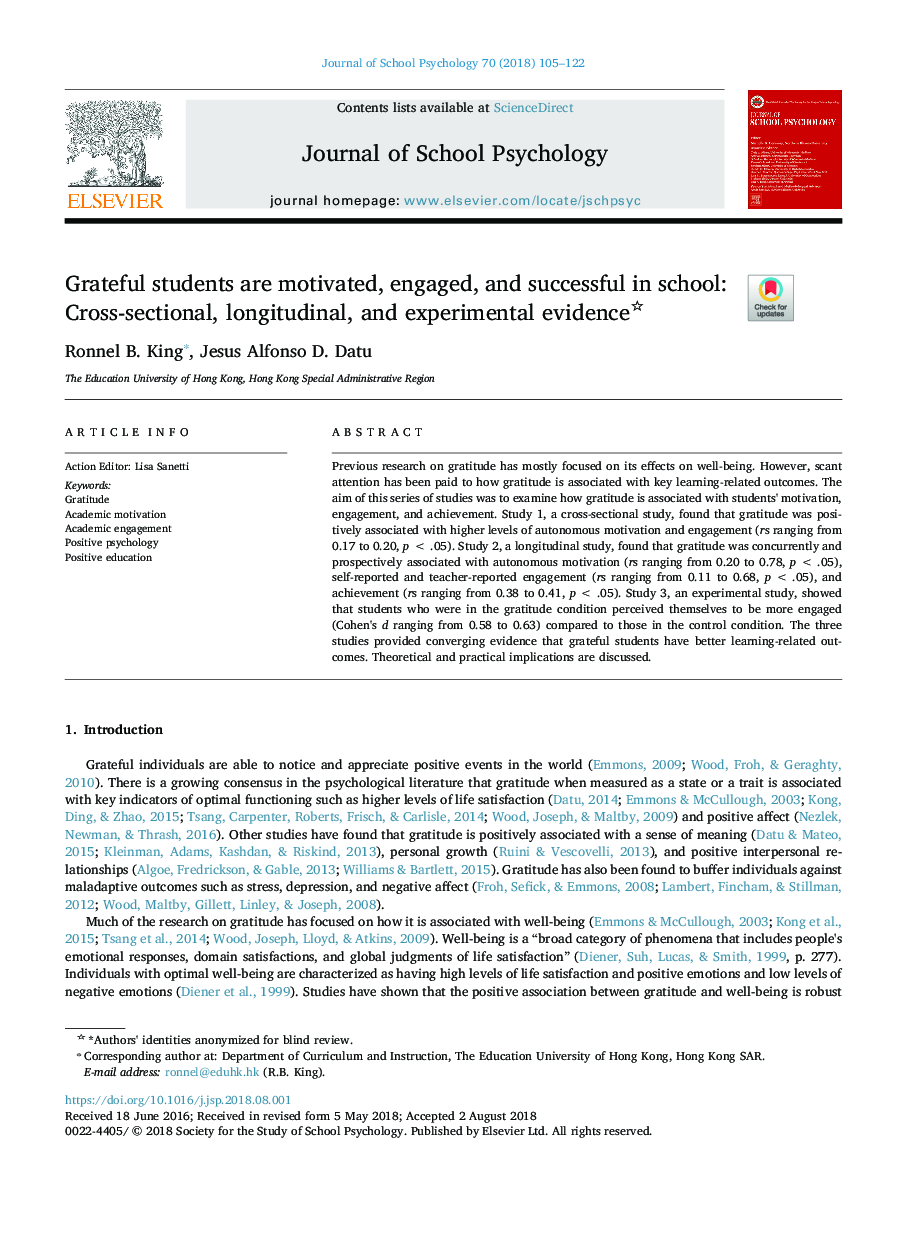| Article ID | Journal | Published Year | Pages | File Type |
|---|---|---|---|---|
| 9951998 | Journal of School Psychology | 2018 | 18 Pages |
Abstract
Previous research on gratitude has mostly focused on its effects on well-being. However, scant attention has been paid to how gratitude is associated with key learning-related outcomes. The aim of this series of studies was to examine how gratitude is associated with students' motivation, engagement, and achievement. Study 1, a cross-sectional study, found that gratitude was positively associated with higher levels of autonomous motivation and engagement (rs ranging from 0.17 to 0.20, pâ¯<â¯.05). Study 2, a longitudinal study, found that gratitude was concurrently and prospectively associated with autonomous motivation (rs ranging from 0.20 to 0.78, pâ¯<â¯.05), self-reported and teacher-reported engagement (rs ranging from 0.11 to 0.68, pâ¯<â¯.05), and achievement (rs ranging from 0.38 to 0.41, pâ¯<â¯.05). Study 3, an experimental study, showed that students who were in the gratitude condition perceived themselves to be more engaged (Cohen's d ranging from 0.58 to 0.63) compared to those in the control condition. The three studies provided converging evidence that grateful students have better learning-related outcomes. Theoretical and practical implications are discussed.
Related Topics
Social Sciences and Humanities
Psychology
Applied Psychology
Authors
Ronnel B. King, Jesus Alfonso D. Datu,
